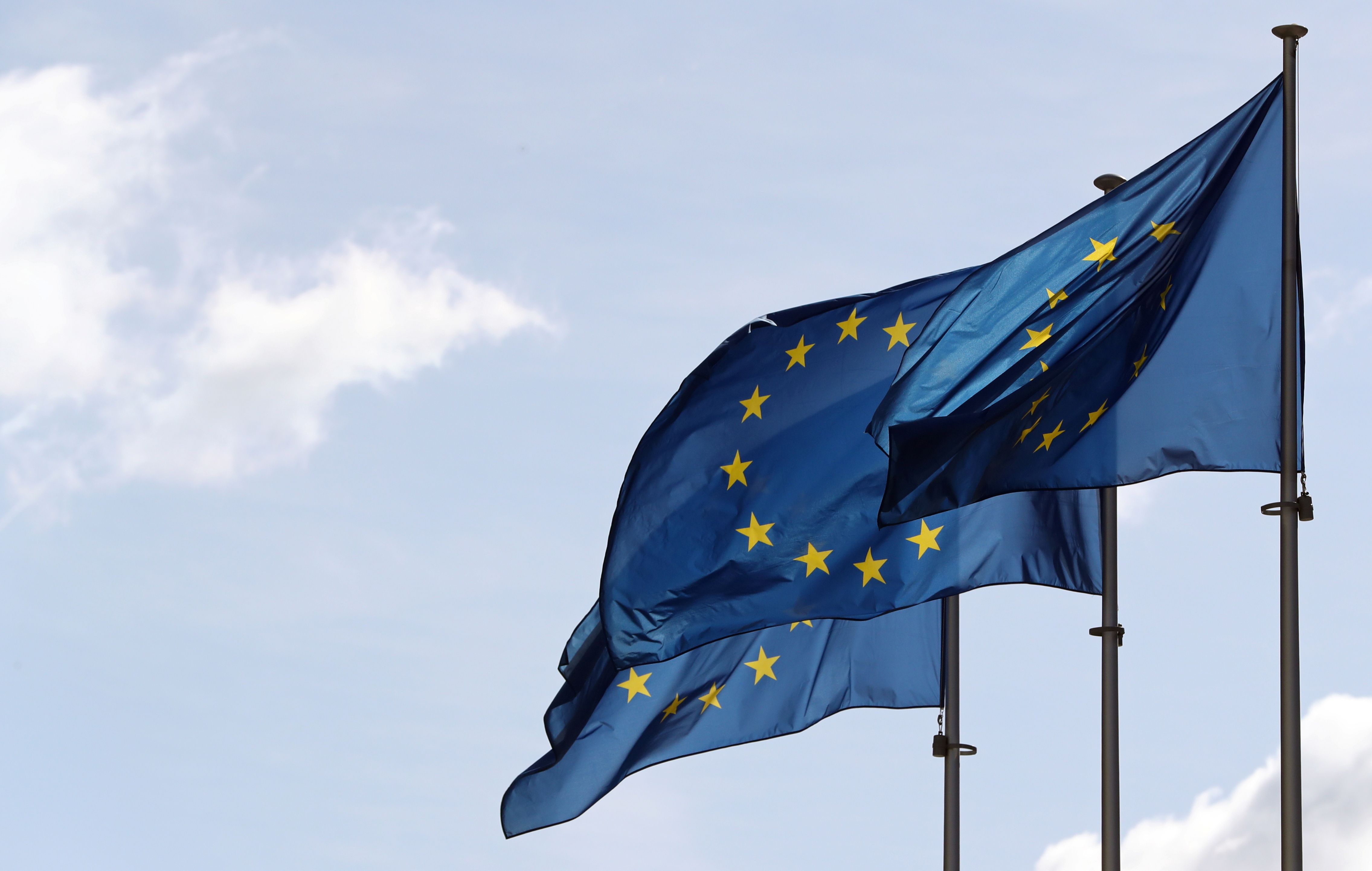State of Negotiations of the EU’s Multiannual Financial Framework

In May 2018, the European Commission (EC) published its budget proposal for 2021–2027 that factored in the effects of Brexit. It called for an increase in membership fees from 1% to 1.11% of GNI while reducing expenditures on the two largest policies—agricultural (about a 15% cut) and cohesion (7% cut). The budget was also to supply additional revenues from reform of the own-resources system to be spent on new priorities, including on the digital agenda (€9.3 billion) or the European Defence Fund (€13 billion).
In the last year and a half since the publication of the Commission’s proposal, the conditions surrounding the negotiations have changed. The new European Parliament (EP) began its term in the spring, and although more internally differentiated, the majority support the new EU priorities. Not long after, the president-elect of the future EC presented her programme, focused on climate, digital and economic challenges. In September, Germany joined the coalition of countries supporting a reduction of membership fees. New circumstances and the current political debate indicate that the arguments of countries calling for financing new priorities at the expense of traditional policies have gained strength. Establishing a strong link between maintaining the rule of law and receipt of EU funding also has majority support.
The Debatable Size of the Next MFF
The EU budget accounts for just over 1% of GDP in all European economies. Despite this, its size traditionally remains the main axis of the dispute between countries that are net payers and those that are net beneficiaries. In the first group, Germany is nominally the largest payer, which makes it a key negotiator in the process, especially in the context of Brexit. After the publication of the Commission’s proposal, Germany took a moderate position, allowing for an increase in contributions in response to the Union’s new political objectives. However, statements by government representatives (including Chancellor Angela Merkel) in recent months indicate a change in the negotiating position. In their view, each Member States’ contribution should not exceed 1% of GNI. Germany now sides with the “frugal four” (Austria, Denmark, the Netherlands and Sweden), which may be dictated by the deterioration of the domestic economic situation and the prospect of recession, which has raised the public’s concerns. However, most Member States support the 1.11% GNI contribution proposal. Several of them (including Estonia, Greece, Portugal, and Hungary) suggest even a 1.3% GNI ceiling, proposed by the EP in the previous term and supported by the majority of members in the new parliament.
The discussion about the size of the next MFF touches upon rebates, currently used—apart from the UK— by the “frugal four” and Germany. The Commission suggested a gradual departure from the rebate system after Brexit, but its beneficiaries are against that. The states belonging to the “group of friends of cohesion policy” have a different opinion, which, with the support of France (18 countries in total), called on the European Commission in November for the immediate (and not gradual) removal of the rebate mechanism.
In addition to membership fees and the method of calculating them, another dividing line has been the introduction of new sources of financing the budget (along with the traditional customs fees, VAT-based revenues, and contributions calculated on the basis of GNI). Additional funding to finance new priorities would avoid drastic cuts in traditional policies (specifically cohesion and agricultural). Last year, the EC presented a detailed proposal to increase budget revenues. It assumed, among others, an EU share in revenue from trading CO₂emission allowances or a tax on non-recycled plastic packaging waste. The Commission’s idea met with wide criticism, including from Germany in September. Before 2021, the Commission is also unlikely to introduce, much less link to the MFF, other legislative proposals currently being debated at the EU level, such as a tax on financial transactions or a digital, aviation, or carbon border tax.
New Directions of Spending
The negotiations to date, including the document proposed by the Finnish presidency of the European Council summit in October, point to the strengthening of arguments favouring financing new EU priorities. The majority in the new EP and Commission President-elect Ursula von der Leyen favour a closer link between the European budget and climate action and the rule of law. This is important in light of the fact that, although the Member States negotiate the amounts of the individual programmes, the EC retains influence on the shape of detailed spending rules. Current discussions include criteria for paying subsidies in relation to EU climate goals. In addition, the EP is pushing for regulations that prevent the implementation of projects that have a negative impact on the environment (including roads or gas pipelines, important for Poland) under structural and investment funds.
Under pressure from France, Germany also agreed to create a eurozone budget under the MFF rather than separately. Most likely, however, it will be an instrument for convergence and competition worth up to €25 billion for all Member States over a seven-year period (of which around €17 billion will be allocated to eurozone members only). In addition, in September, the countries of the zone agreed that a possible extension of the instrument would be possible in the form of an intergovernmental agreement outside the financial framework mechanism.
An important topic, especially from Poland’s point of view, is to provide in the budget funds for the energy transformation of regions highly dependent on fossil fuels. Last year, the EP called on the Commission to include in its proposal a special fund for this purpose (the so-called “just transition” fund) in the amount of an additional €5 billion. The money would be designated to the modernisation fund, operating outside the EU budget, and technical support in the costly transition to a low-carbon economy. The amount indicated, if it receives full approval from the EU Council in the final phase of negotiations, still would be only a fraction of the predicted expenditure necessary to achieve climate neutrality by 2050.
Conclusions
The future EU financial framework will most likely require contributions of less than the 1.11% of GNI proposed by the EC. This is because of the strengthening of the negotiating position of the “frugal four” when Germany joined them. In addition, arguments in favour of new priorities, the implementation of which would require a reduction in cohesion and agricultural policy funds, are gaining strength. However, most Member States oppose drastic cuts in these areas. It is, therefore, more likely that the rules for financing traditional programmes will change in such a way that they are more closely linked to EU plans in the areas of climate, migration, or the economy.
At the same time, with the new EP maintaining majority support for an ambitious budget (both in terms of objectives and amount), MEPs may not agree to the more modest MFF proposal negotiated in the EU Council. This would mean delaying the adoption of the multiannual framework and set Germany as the main moderator of the final negotiations in the second half of 2020 due to its presidency of the Council of the EU during that period. The implementation of such a scenario could ultimately convince Germany to increase the fees to more than 1% of GNI (but less than 1.11%) or to modify the rebate system.
For Poland and other countries dependent on coal, it is crucial to ensure funds for the “just energy transformation.” Thanks to the EP, budgeting of €5 billion (over seven years) for technical support of the process is realistic. According to estimates, however, additional funds totalling at least €10–15 billion per year and not coming from other MFF programmes, are needed. These funds could come from the introduction of new sources of own revenues (such as revenues from a border or aviation tax), although there is not unanimous consent for them at the moment.
Faced with the risk of a reduction in the MFF, there is also concern about the intensification of the trend of differentiated integration (also known as “multi-speed Europe”), an arrangement in which groups of countries wishing to implement a specific sectoral policy operate together on the basis of intergovernmental agreements, as in the case of the announced eurozone budget. However, this trend carries the risk of widening differences in economic growth dynamics between EU regions.


